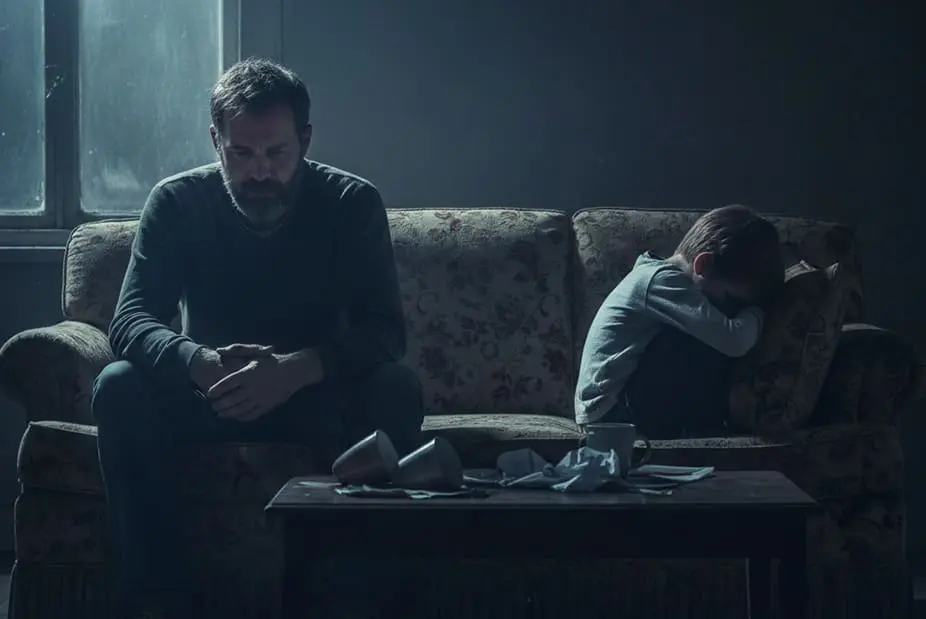Life can change in an instant. A painful memory, a traumatic event, or an experience that shakes your sense of safety can quietly settle into your nervous system. Over time, trauma doesn’t always disappear. It lingers, rewires how you think, feel, and respond. For many people, that lingering pain can evolve into something deeper: depression.
In this blog, we will explore how trauma influences depression and how the two are deeply connected. We will also shed light on why healing needs to address both the emotional wound and its ripple effects.
What Is Trauma?
Trauma is not just about what happened to you. It’s also about how your mind and body responded to it. Whether it’s a single life-threatening event or prolonged emotional neglect, trauma leaves an imprint on the brain. It changes your ability to regulate emotions, trust others, and feel grounded in the present moment.
According to mental health experts, trauma affects key parts of the brain involved in emotional regulation, including the amygdala, hippocampus, and prefrontal cortex. When these areas stay in a heightened state of alert, your body begins to operate as though it’s still in danger, even when it’s not. Such a constant state of stress can become emotionally exhausting and make it difficult to experience joy or hope.
The Link Between Trauma and Depression
Not everyone who experiences trauma develops depression. But for many, especially those without adequate support, the risk becomes significantly higher.
As modern therapists explain, trauma often creates unresolved emotional pain, which can fester when ignored. That emotional burden may eventually express itself as depression. Feelings of helplessness, chronic sadness, guilt, and disconnection from others are common symptoms.
The overlap between trauma and depression lies in the brain’s response to prolonged stress. When the mind stays in survival mode, it has little room for pleasure or rest. Over time, this state dulls your emotional landscape.
You may feel emotionally numb, lose interest in things you once loved, or struggle with low self-worth. These are symptoms of a nervous system that has not yet felt safe enough to let go.
How Trauma-Based Depression Feels?
Trauma-related depression often feels different from situational sadness. Instead of reacting to a current challenge, you may feel a persistent heaviness with no clear reason. You might also experience:
- Difficulty trusting others or forming close relationships.
- Nightmares or flashbacks that leave you emotionally drained.
- Trouble concentrating or feeling motivated.
- Deep emotional fatigue, even after resting.
- Physical symptoms such as headaches, muscle pain, or digestive issues.
Importantly, these symptoms are not just in your head. They reflect real, biological changes in how your body processes stress and emotion.
Why Trauma-Informed Care Matters?
Treating trauma-related depression demands a trauma-informed approach. It’s the one that acknowledges your history, validates your pain, and creates emotional safety.
Therapies such as EMDR (Eye Movement Desensitization and Reprocessing), somatic experiencing, and trauma-informed cognitive behavioural therapy (CBT) have helped many people reconnect with themselves. These methods don’t ask you to “move on” but instead help you process and integrate what happened so you can live with more freedom in the present.
A strong support system also plays a crucial role. You can speak with a therapist trained in trauma, join peer support groups, or even practice grounding techniques at home. It will gradually shift how your nervous system responds to triggers.
Healing Is Possible
At ATL Behavioral, we understand that trauma and depression are deeply connected. Healing requires more than just a clinical approach. It takes compassion, patience, and a safe space where your story is heard without judgment.
If you are struggling with persistent sadness, emotional numbness, or the effects of a painful past, you are not alone. And, you don’t have to navigate it by yourself. Our trauma-informed team is here to support you through curated trauma counseling services at every step of your healing journey.
Reach out today to start a conversation that could lead to lasting change. You will heal, and the journey begins with a single step.




